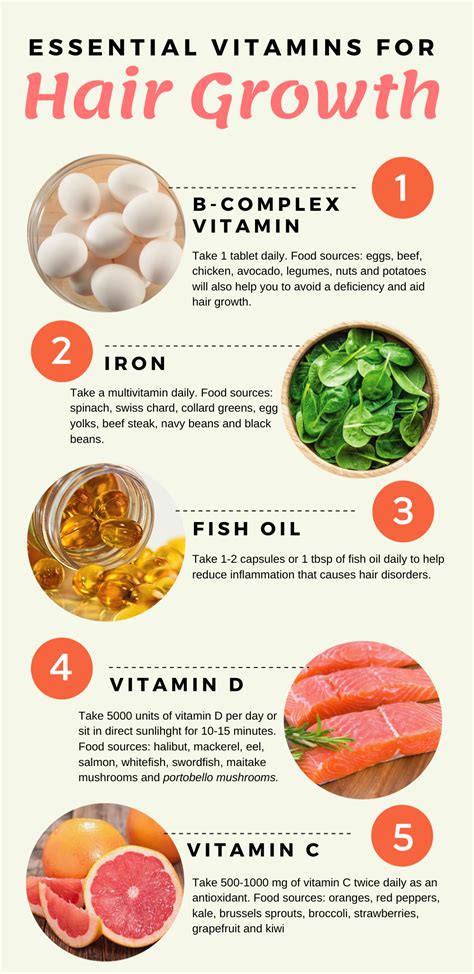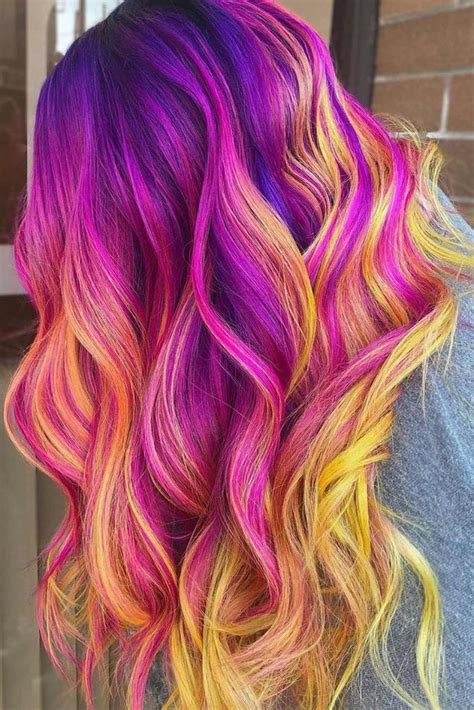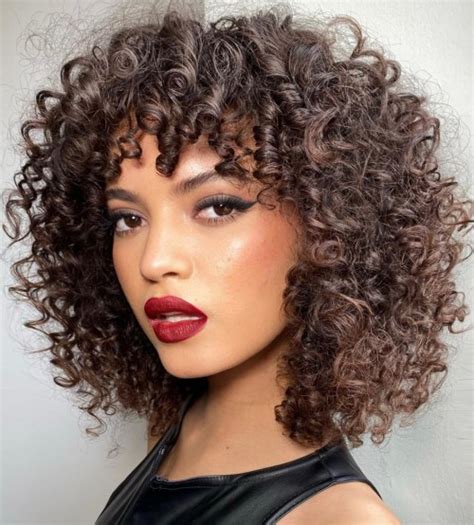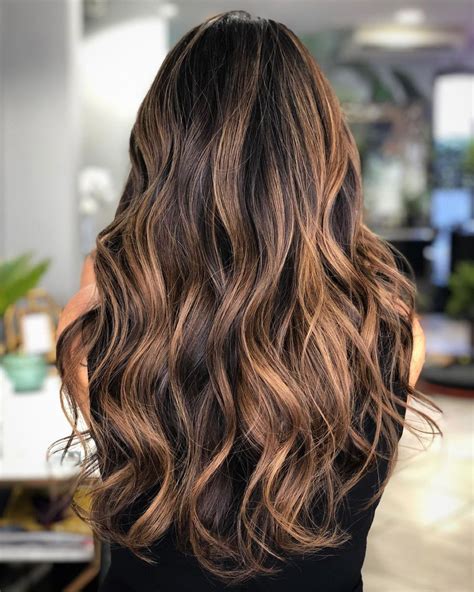Learn about the hair growth cycle, importance of vitamins for hair health, deficiency and hair loss, top hair growth vitamins, and best ways to incorporate them into your diet.
Understanding Hair Growth Cycle
Contents
The hair growth cycle consists of three main stages: anagen, catagen, and telogen. During the anagen phase, the hair is actively growing, and this phase typically lasts anywhere from 2 to 7 years. Following the anagen phase is the catagen phase, which is a transitional period where the hair follicle shrinks and detaches from the dermal papilla. This phase lasts for about 10 days. Lastly, the telogen phase is a resting period where the old hair falls out and a new hair begins to grow in its place. This phase lasts for about 3 to 4 months. Understanding these stages is important for both hair health and managing hair loss.
It’s important to note that everyone’s hair growth cycle is unique and can be influenced by a variety of factors, such as genetics, age, and overall health. However, on average, the hair growth cycle typically results in the loss of 50 to 100 hairs per day, which is considered normal. If you notice excessive hair shedding or thinning, it may be a sign of an imbalance in the hair growth cycle or an underlying health issue.
By understanding the hair growth cycle, individuals can better understand the timing and effectiveness of hair growth treatments and products. For example, hair loss treatments are typically most effective when targeting hair follicles during the anagen phase, as this is when they are most active and responsive to stimulation. Additionally, having a comprehensive understanding of the hair growth cycle can help individuals take preventative measures to maintain healthy hair and identify any abnormal patterns or changes in their hair health.
Overall, understanding the hair growth cycle is essential for maintaining the health and vitality of your hair. By recognizing the unique stages and factors that influence hair growth, individuals can take proactive steps to address any issues, promote healthy hair growth, and maintain a luscious mane.
Importance of Vitamins for Hair Health
When it comes to maintaining healthy hair, taking care of your body from the inside out is essential. One of the key factors in promoting hair health is ensuring that you are consuming the right vitamins and minerals. These essential nutrients play a crucial role in supporting the growth and strength of your hair.
First and foremost, vitamins such as biotin, vitamin D, and vitamin E are known for their positive effects on hair health. Biotin, also known as vitamin B7, aids in the production of keratin, a protein that makes up the structure of hair. Vitamin D helps to create new hair follicles, which are essential for the growth of healthy hair. Vitamin E acts as an antioxidant, protecting hair follicles from damage and improving overall health.
In addition to these specific vitamins, a well-rounded intake of nutrients such as iron, zinc, and omega-3 fatty acids is also crucial for promoting hair health. Iron helps to carry oxygen to the hair follicles, promoting growth. Zinc plays a role in repairing hair tissue and keeping the oil glands around the hair follicles functioning properly. Omega-3 fatty acids help to nourish the hair and support a healthy scalp.
It’s important to note that a deficiency in these nutrients can lead to hair loss, thinning, and damage. In order to maintain strong and healthy hair, it’s crucial to ensure that you are consuming a balanced diet that includes these essential vitamins and minerals. In some cases, supplements may also be necessary to fill any gaps in your nutrient intake.
Vitamin Deficiency and Hair Loss
When it comes to maintaining healthy hair, we often focus on using the right products and following a proper hair care routine. However, what many people don’t realize is that vitamin deficiency can play a significant role in hair loss. If your body lacks essential vitamins, it can negatively impact the health of your hair follicles and lead to excessive shedding.
One of the most common vitamin deficiencies linked to hair loss is vitamin D. Low levels of this vitamin can result in weak, thinning hair and even alopecia. Another crucial nutrient for hair health is iron. An iron deficiency can cause anemia, which in turn can lead to hair loss. Additionally, insufficient levels of vitamin C can hinder the body’s ability to produce collagen, a protein that’s essential for hair structure and growth.
It’s important to monitor your vitamin levels and ensure that you’re getting an adequate amount through your diet. If you suspect that you may be experiencing hair loss due to a vitamin deficiency, consulting with a healthcare professional and getting a blood test can help identify any deficiencies and determine the best course of action.
Addressing vitamin deficiency can be a crucial step in preventing and reversing hair loss. Incorporating a well-balanced diet that includes foods rich in essential vitamins and considering supplements if necessary can help support the overall health of your hair and scalp.
Top Hair Growth Vitamins to Consider
When it comes to promoting healthy hair growth, it is important to ensure that you are getting the right vitamins in your diet. Vitamins play a crucial role in maintaining the overall health of your hair and scalp. Here are some of the top hair growth vitamins that you should consider incorporating into your daily routine:
Vitamin A: This essential vitamin helps to produce sebum, which is the natural oil that keeps your scalp moisturized. Additionally, it promotes the growth of hair follicles and contributes to overall hair health.
Biotin (Vitamin B7): Biotin is often referred to as the hair vitamin for its ability to support the growth and strength of hair. It is also essential for maintaining healthy skin and nails.
Vitamin C: Vitamin C is an antioxidant that helps to protect the hair follicles from damage caused by free radicals. It also assists in the production of collagen, which is essential for maintaining the strength and elasticity of hair.
Vitamin E: This vitamin helps to improve blood circulation, which in turn promotes hair growth. It also has antioxidant properties that contribute to a healthy scalp and hair.
Best Ways to Incorporate Vitamins into Your Diet
Ensuring that you get an adequate amount of vitamins in your diet is crucial for maintaining the health of your hair. Fortunately, there are several effective ways to incorporate these essential nutrients into your daily meals.
One of the best ways to ensure you are getting enough vitamins is by consuming a variety of fruits and vegetables each day. This is because these foods are packed with essential nutrients that are vital for hair growth and overall health.
In addition to fruits and vegetables, incorporating whole grains into your diet can also help provide your body with the necessary vitamins it needs to promote hair growth. Meals that include foods such as brown rice, quinoa, and oatmeal can be particularly beneficial.
Another effective way to ensure you are getting enough vitamins is by incorporating lean proteins into your meals. Foods such as eggs, chicken, and fish are excellent sources of essential nutrients that are known to promote hair health.
Lastly, consider taking a multivitamin supplement to fill in any gaps in your diet. This can be especially helpful if you find it challenging to consume enough vitamins through your diet alone.











